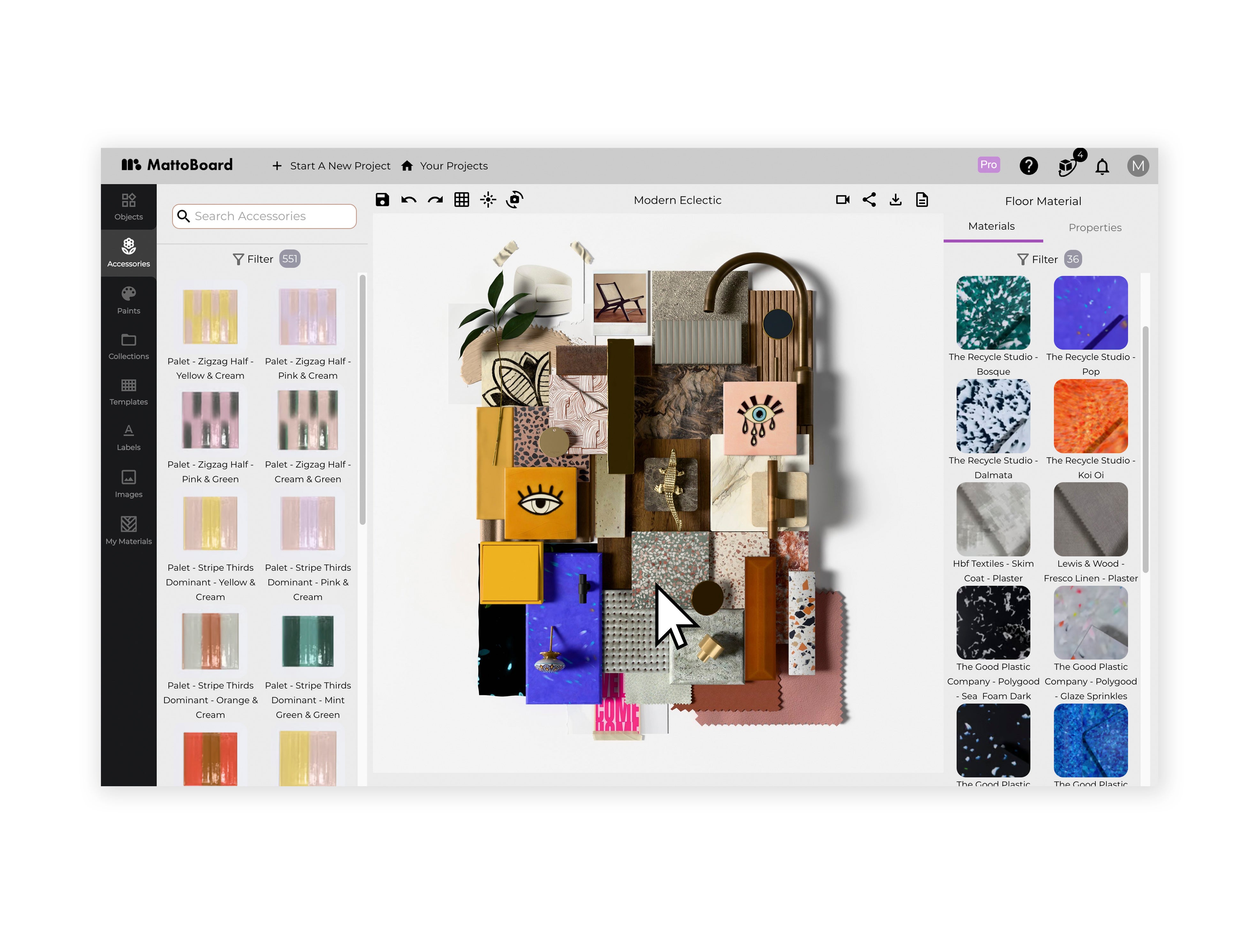MattoBoard, the tech platform that allows users to create virtual 3D moodboards, has announced a $2 million round of seed funding. The raise, led by VC fund Acrobator Ventures, included some surprising names along for the ride: Home Depot and building product manufacturer Masco both participated.
“We have two huge strategic giants who have been our biggest fans,” says MattoBoard co-founder and CEO Guy Ailion. “They’ve already introduced us to a lot of serious brands that have all been very interested in finally creating a digital, virtual library in the cloud … [the fundraise] is going toward a big technical push for us: We plan to bring on 10,000 more SKUs within the next two months.”
Ailion, an architect and designer, launched MattoBoard with co-founder George Hart in 2022. The premise was simple: an online engine that allowed designers to pull together a virtual moodboard with hyperreal 3D representations of materials (reflections, shadows and all). The germ of the idea sprung from experiences Ailion had had in his own firm.
“Anyone under the age of 40 in my office was not starting their projects in a material library. They were going online, and they had hundreds of tabs open of different products, of different websites—researching them, downloading pictures, putting them into Photoshop, seeing how they mixed and matched,” he says. “And then they’d have to change their mind, or the client gives them feedback, and [the designer] goes through this process again.”
The project caught some Covid-era buzz, and has kept up the momentum. Ailion says it has 200,000 sign-ups and 20,000 active users. Most have free accounts, though MattoBoard has a pro tier with extra features that costs $20 per month.
“At the time, virtual sampling didn’t really exist. Our real challenge there was to see if we could get the behavior of a group of designers to change—whether this was something that they wanted to do,” says Ailion. “What we learned very quickly was that the designers wanted the tool.”
On the brand side, MattoBoard has roughly 50 companies featuring their product on the site, just under 20 of which are paying partners (tiers range from $500 to $2,500 per month). Initially, Ailion assumed that the appeal for brands would mainly be lead generation: Get your product into virtual mood boards, and it’s more likely to get specified. In practice, he says, brands are just as excited about other uses.
“They wanted to use it to produce content [featuring] their products, which was unexpected. They’ve got all this stock, but they’re relying on designers to create compelling visuals,” he says. “[Being on the platform] also allows them to have access to loads of other products to put next to theirs. [A kitchen hardware brand] could have their tap next to beautiful Cortina leather and a really nice floorboard without having to have physical libraries themselves.”
Moreover, having their product in a virtual library gives brands a window into designers’ creative processes they normally would never have. Most material selection “quite literally happens behind closed doors, in studio offices, around a table, in the material library, or today, in Canva or Photoshop, or some form of software,” says Ailion. “This is the first time that [brands] can actually start to see basket matching of their products. Who’s using what product with others? When did [designers] abandon their product? When did they use it? When did they not use it? It’s a very interesting form of sort of data capture for them, which we can now sort of see for the first time.”
Ailion plans to use the funding to rapidly expand MattoBoard’s materials library, and to introduce—you guessed it—AI features that will help designers find materials more efficiently. Not on the road map: ever “replacing” physical samples.
“You will always want to touch and feel the product, especially when you’re ordering $200,000 worth of flooring for a foyer,” says Ailion. “I’m not going to do that through a digital transaction. … The idea of virtual sampling is that we can reduce physical sampling by an order of magnitude, and that way you actually increase what we call ROSI, or the return on sampling investment for a brand.”





























